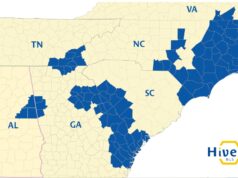Companies Can Reduce Carbon Footprint by Giving Consumers Green Choices
NREL researchers studied online retailing, ride sharing, video streaming and short-term lodging options
WASHINGTON, D.C. — (RealEstateRama) — Companies can reduce the carbon footprint of their supply chains and improve customer satisfaction by giving consumers information and tools to make green choices, according to research conducted by the Energy Department’s National Renewable Energy Laboratory (NREL) and published in the Proceedings of the National Academy of Sciences.
The findings are drawn from a series of experiments designed to measure consumer preference of various approaches to making more environmentally friendly purchase decisions in online transactions. Researchers looked at methods of presenting carbon footprint information, a practice commonly referred to as eco-labeling. The research team also looked at the impact of offering consumers the option to add carbon offsets to their bills. The experiments focused on four sectors: online retailing, ride sharing, video streaming and short-term lodging.
“Consumers who wish to reduce greenhouse gas emissions embodied in their purchase decisions can be stymied by lack of reliable and accessible information,” NREL’s Steven Isley, the lead author of the report said. “Our experiments indicated that by taking simple steps to gather and share emissions data at the point of purchase-and offering greener alternatives-vendors can increase the likelihood that consumers will make greener choices. We also saw indicators that providing such options can increase satisfaction of green-minded consumers.”
“Online Purchasing Creates Opportunities to Lower the Life Cycle Carbon Footprints of Consumer Products” is written by Isley; Paul C. Stern of the National Academies of Sciences, Engineering, and Medicine; and NREL’s Doug Arent, Scott Carmichael and Karun Joseph.
The experiments are part of a larger body of work at NREL focused on the human element in energy systems. The research aims to identify opportunities to increase comfort and quality of life for individuals while simultaneously identifying opportunities to optimize energy systems.
“Our findings indicate that the ways in which we design, deliver, and optimize consumer services can have a major impact on our energy consumption in the 21st century, and that is in part due to the vast scale of the consumer services sector,” said Doug Arent, who leads the area of work for NREL and is executive director of the Joint Institute for Strategic Energy Analysis. “In the United States, indirect carbon dioxide emissions of products and services we purchase are double the direct emissions from home energy use and personal travel.”
NREL is the U.S. Department of Energy’s primary national laboratory for renewable energy and energy efficiency research and development. NREL is operated for the Energy Department by The Alliance for Sustainable Energy, LLC.
###
Visit NREL online at www.nrel.gov

















